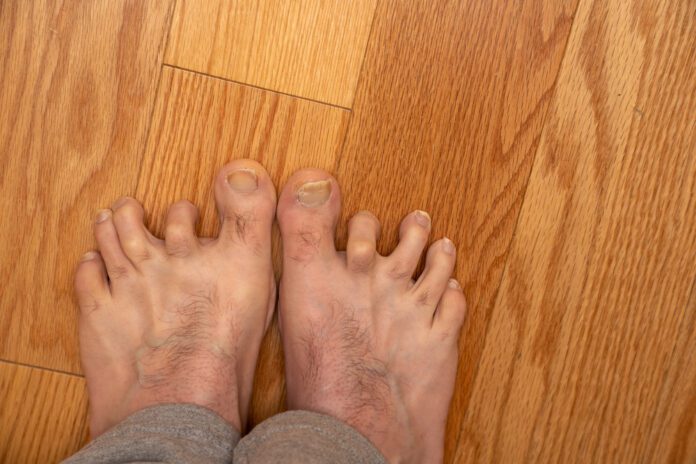Overview
Hammer toe is a deformity of the toe. The end of the toe is bent downward.
Causes
Hammer toe most often affects the second toe. However, it may also affect the other toes. The toe moves into a claw-like position.
The most common cause of hammer toe is wearing short, narrow shoes that are too tight. The toe is forced into a bent position. Muscles and tendons in the toe tighten and become shorter.
Hammer toe is more likely to occur in:
- Women who wear shoes that do not fit well or often wear shoes with high heels
- Children who wear shoes they have outgrown
- The condition may be present at birth (congenital) or develop over time.
In rare cases, all of the toes are affected. This may be caused by a problem with the nerves or spinal cord.
Symptoms
The middle joint of the toe is bent. The end part of the toe bends down into a claw-like deformity. At first, you may be able to move and straighten the toe. Over time, you will no longer be able to move the toe. It will be painful.
A corn often forms on the top of the toe. A callus is found on the sole of the foot.
Walking or wearing shoes can be painful.
Exams & Tests
A physical exam of the foot confirms that you have hammer toe. The health care provider may find decreased and painful movement in the toes.
Treatment
Mild hammer toe in children can be treated by manipulating and splinting the affected toe.
The following changes in footwear may help relieve symptoms:
- To avoid making the hammer toe worse, wear the right size shoes or shoes with a wide toe box for comfort
- Avoid high heels as much as possible.
- Wear shoes with soft insoles to relieve pressure on the toe.
- Protect the joint that is sticking out with corn pads or felt pads.
- A foot doctor can make foot devices called hammer toe regulators or straighteners for you. You can also buy them at the store.
- Exercises may be helpful. You can try gentle stretching exercises if the toe is not already in a fixed position. Picking up a towel with your toes can help stretch and straighten the small muscles in the foot.
- For severe hammer toe, you will need an operation to straighten the joint.
- The surgery often involves cutting or moving tendons and ligaments.
- Sometimes, the bones on each side of the joint need to be removed or connected (fused) together.
Most of the time, you will go home on the same day as the surgery. You may be able to put weight on your heel to walk around during the recovery period. However, you will not be able to push off or bend your toes in normal walking for a while. The toe may still be stiff after surgery, and it may be shorter.
Source
Courtesy of MedlinePlus from the National Library of Medicine



